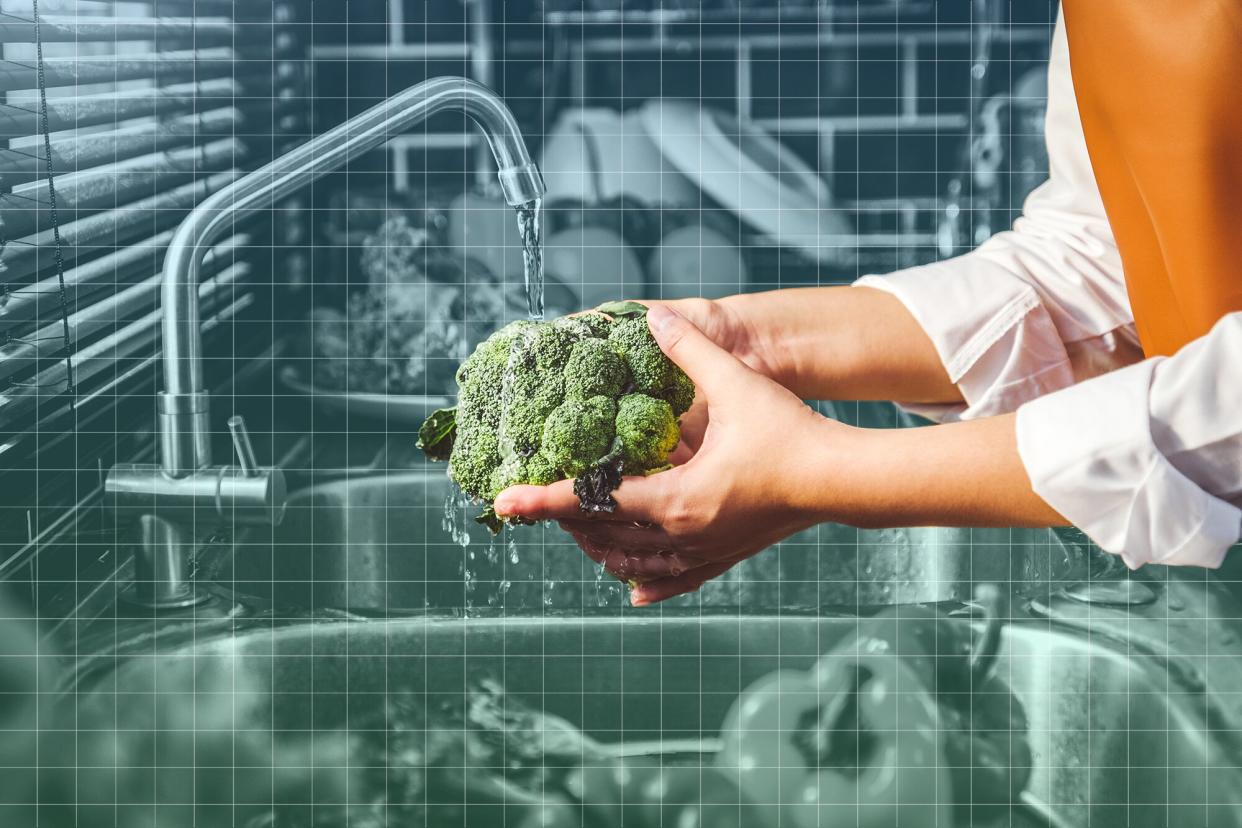Do You Need to Wash Fruits and Vegetables Before Eating Them?

Getty Images
From Brussels sprouts and apples in the fall to tomatoes and zucchini in the summer, fresh produce is an important part of any healthy eating pattern. Eating enough fruits and vegetables ensures your body is getting key nutrients and vitamins, like potassium from a banana or vitamin C from kale, which can help with heart health and supporting immunity, respectively. But before you can reap these benefits and enjoy your produce haul from the farmers' market or grocery store, you'll need to prep your produce properly. Read on to find out everything about washing fruits and vegetables.
Do You Need to Wash Fruits and Vegetables?
Yes—whether you're enjoying the produce raw or cooked, you should wash any fruit or vegetable before consuming it. As the USDA's Food Safety and Inspection Service explains, washing produce helps remove any dirt or bacteria that is present. Bacteria like Salmonella, E.coli and Listeria can lead to illness, with symptoms including fever, headaches and more.
While washing produce should be standard practice, there is an exception to the rule. If you purchase produce like bagged salads or pre-cut fruit that's labeled "pre-washed" or "ready-to-eat," you can skip washing it, as the produce has already been cleaned under ideal conditions. In fact, by washing it again, you run the risk of cross-contamination, as it could come in contact with dirty surfaces in your kitchen.
Related: 6 Filthy Places in Your Kitchen You Should Be Cleaning Every Day
How to Wash Produce
Before you wash any produce, make sure your hands and any surfaces that the produce will come in contact with are clean. The last thing you want to do is have a clean piece of produce, only to recontaminate it by putting it on a dirty kitchen counter.
Here's how to wash fruits and vegetables:
Before washing, cut off any damaged or bruised areas on the produce.
Wash the produce under running water, taking care to remove any dirt. Even if you plan to remove the peel or skin, it's best to clean the fruit or vegetable with the peel still on, as bacteria can transfer from the knife or peeler to the produce as you're removing it.
Dry produce with a clean kitchen towel or paper towel.
Never use soap, detergent or commercial produce washes to clean fruits and vegetables as these are not approved by the Food and Drug Administration, and accidentally consuming these cleaners could make you sick. If you're washing something with a firm skin, like potatoes or melon, you can use a clean, soap-free scrub brush to help.
Depending on the produce, you may want to hold off on washing it until you're ready to eat it. When more delicate vegetables and fruits (like leafy greens or berries) are wet, bacteria can grow at a quicker rate, which can lead to spoilage and a shorter shelf life.
The Bottom Line
Whether your fresh produce is from the farmers' market or your local grocery store, it's smart to wash fruits and vegetables before eating them. Wash produce under running water, and avoid using soap or detergent.

